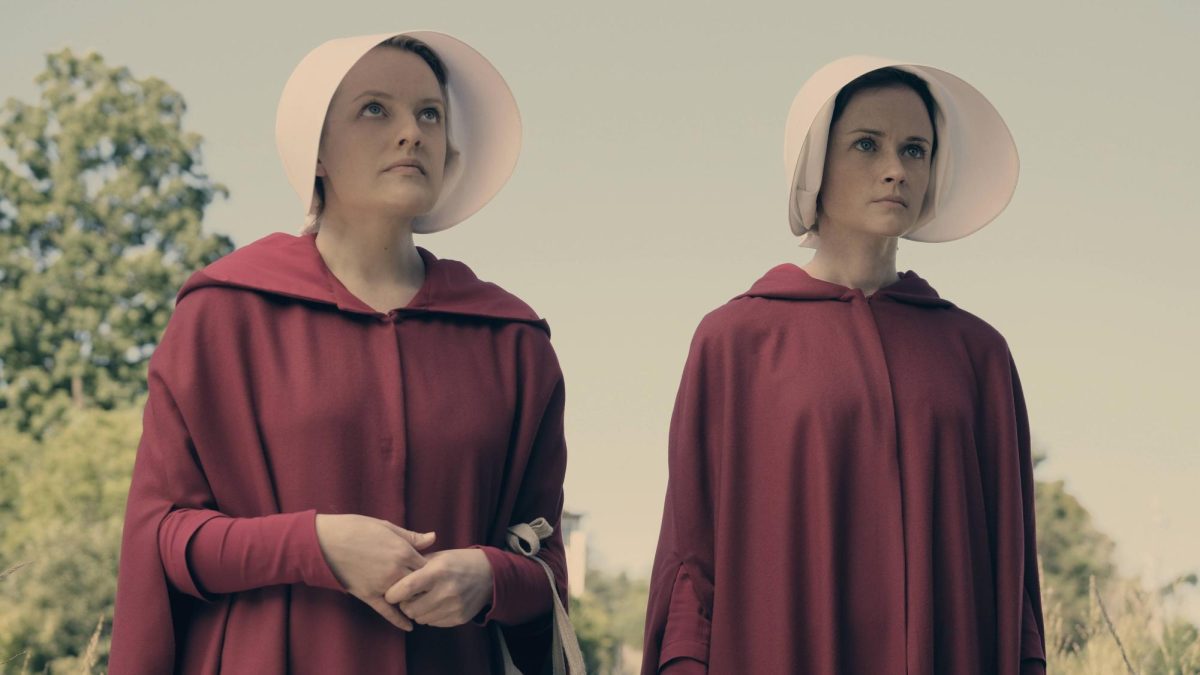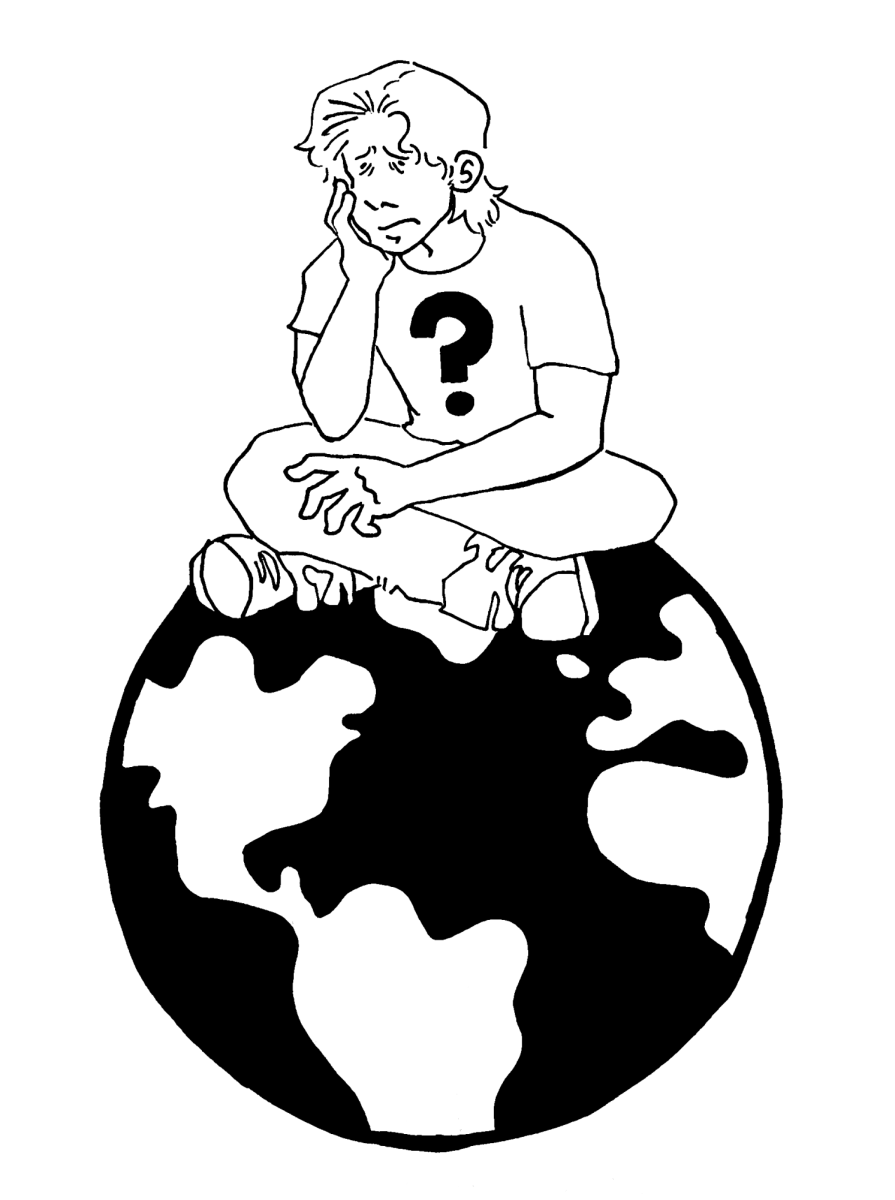To acknowledge the countless voices silenced by the practice of censoring literature, banned books week was Sep. 22-28, 2024 and I wonder how often dystopia becomes reality.
In 2023, 4,200 titles were threatened by censorship, peaking at the highest number of challenged books documented by The American Library Association (ALA). That is growth of 65% in comparison to 2022.
The Flourish Team uses the data that ALA compiles to create projection maps that illustrate the attempts to ban books in each state annually; the 2023 map paints a jarring picture where Florida and Texas are colored dark red, representing thousands of challenged titles.
One novel amidst the thousands was “The Handmaid’s Tale” by Margaret Atwood, a dystopian novel published in 1985 and adapted to screens in 2017. The novel is banned in Texas, Florida, Oregon and Virginia.
The issue with book banning lies in the freedom of choice and intention.
“It’s one thing for your family or you to decide that you don’t want to read something,” School Librarian TuesD Chambers said. “But for my family to decide for your family, that’s where it gets really, really sticky.”
Books are not being banned to shield young minds from inappropriate content; it is blatantly obvious that the practice of book banning, especially recently in the U.S., is harmful rather than protective.
“Most people that are banning books are white people who are straight,” Chambers said. “That’s problematic.”
Those individuals are targeting books about experiences they have never been subjected to; therefore, have very little informed or valid reasoning to censor an author’s work. The numbers are disproportionate and many of the stories being silenced are not the voices of white men.
“If the voices of people of color and LGBTQIA+ are being banned, are those the voices that we are trying to eliminate out of our society?” Chambers said. “What are we trying to say about those peoples’ experiences?”
In 2021, a Texas state lawmaker advocated for the removal of Atwood’s bestselling novel “The Handmaid’s Tale” from the shelves of school libraries. Those who fight for the erasure of Atwood’s novel criticize the novel’s “anti-Christian sentiment,” feminist topics, profanity, LGBTQIA+ characters and sexual content.
Atwood’s novel is eloquently crafted and movingly raw. “The Handmaid’s Tale” will always be relevant as long as women are oppressed.
Does that make it a feminist novel? Atwood represents the women in her story as noteworthy and important human beings; if that provides an answer, then so be it.
Yes, “The Handmaid’s Tale” is critical of the manipulative employment of religion to justify oppression. But the novel is not necessarily critical of Christianity or religion itself, simply the use of religion as a destructive tool.
The reasoning of profanity and sexual content to ban the novel is a misinformed and ignorant claim. Not a single event, according to Atwood, is something that hasn’t already happened in the world today.
The oppression, the sexual assault and so forth, it is all happening to women right now, across the world. School boards may call it inappropriate and obscene, but that will never change the fact that women have been oppressed for centuries and these lawmakers are attempting to erase history.
It is ironic that in Atwood’s fictional totalitarian society, books are illegal. Reading or writing is strictly prohibited in Gilead, the fictional dystopia Atwood crafts, as a means of control over knowledge and free thought.
How far could book banning go in 50 years? In five?
Already in July 2024, a Tennessee law solidified additional restrictions to the Age Appropriate Materials Act. Recently, a list of forty-eight books that do not meet the new requirements was released; all Tennessee schools are required to pull any and all books that do not meet the standards.
Perhaps the idea of such a world is preposterous and otherworldly to some, but as disturbing and saddening as it is, some parts of this world are not too far from “The Handmaid’s Tale.”
Hyperbolic statements condemning novels have pushed thousands of books from shelves. On occasion, challenges have even escalated to the point of penalizing librarians and educators.
Chambers experienced a situation where a student checked out a memoir containing sexual assault, resulting in a difficult situation for her, the student and the student’s mother.
“I said, are you sure you want to check out this book?” Chambers said. “It was a choice.”
The student’s mother emailed Chambers, criticizing the book and expecting that it would be taken off shelves. The principal at the time defended Chambers from the attempted challenge.
“That doesn’t happen all the time,” Chambers said. “Sometimes principals don’t back teachers and then you’re screwed.”
However, even if educators win a few battles against censorship, the hesitation to risk promoting “unsafe” books is harmful in itself.
“There’s something that we don’t talk very often about, it’s called soft censorship,” Chambers said. “I’ll look to purchase, recommend or put a book in front of a class, and if I think I could get in trouble for this book, I’m less likely to use it.”
This is still limiting the literature that students are able to consume.
“So, if those books are the ones that are people of color or LGBTQIA+, then I am soft censoring what kids have access to,” Chambers said.
Still, advocating for literary freedom is not a fruitless effort. Avid readers and authors have the option of supporting initiatives that fight censorship.
Countless individuals are committed to the fight against banning books, here at school, from bookstores, from libraries and homes.
“Teachers, authors, independent bookstores,” Chambers said. “They’re just trying to get people to read.”
The best ways that students in particular can fight book banning, according to Chambers, is to read and to recommend novels to those who surround you.
“I make sure I’m on top of what are hot new books,” Chambers said. “Then students read them and recommend them to a friend.”
So, if you have the opportunity to choose the next novel you read, consider stopping by the library and picking up “The Handmaid’s Tale” by Margaret Atwood.

























